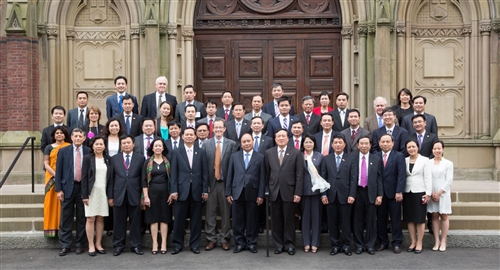About the Program
Launched in 2008, the Vietnam Executive Leadership Program (VELP) is a high-level policy forum co-organized by the Harvard Kennedy School (HKS) and Fulbright School of Public Policy and Management (FSPPM). VELP provides a forum for high-ranking policymakers and executives to deliberate on the most significant global socio-economic trends based on up-to-date practical research, and an opportunity to discuss policy challenges for Vietnam’s development.
The 5-day program, which takes place at HKS, is offered by HKS and FSPPM for high-ranking Vietnamese politicians. To be among the delegates, one must be at the Vice-Ministerial level and above. The delegation is usually led by a Deputy Prime Minister or a Politburo member.
Until 2019, FSPPM has successfully organized seven successful Vietnam Executive Leadership Programs.
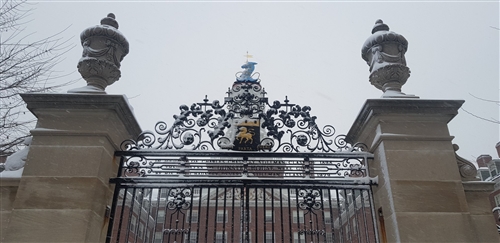
Curriculum
The program is designed specifically to focus on the primary short, medium, and long term economic and policy problems facing Vietnam. While a number of modules address topics related to the global economy, these sessions are designed in order to provide the Vietnamese policymakers with a better understanding of the external environment, together with its opportunities and challenges, in which they are operating.
VELP draws upon cutting edge research into the Vietnamese economy. The analysis is independent and critical. The Harvard Vietnam Program has studied the Vietnamese economy since the end of the 1980s, longer than any other international research organization. Harvard’s impartiality has enabled the program to establish an unmatched track record of reliable and candid policy analysis and pragmatic recommendations.
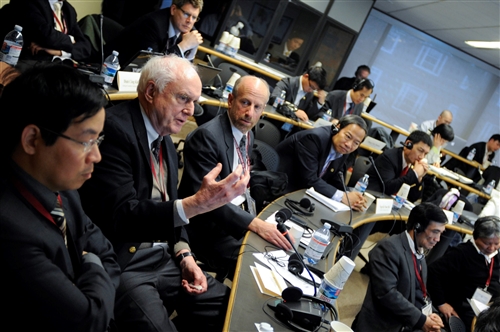
Why is VELP unique?
VELP is like no other policy dialog forum in Vietnam. It is special in several key respects.
First, it provides Vietnamese policymakers with an opportunity to hear from and interact with world-class experts on the global economy. The experts who speak at VELP come from prestigious universities, renowned think-tanks, and leading multinational corporations. They are participants in an elite global discourse; policymakers from Washington to Brussels to Beijing take their views seriously. VELP was established in order to provide Vietnamese policymakers with the same opportunities as their peers in other major economies. VELP participants need not agree with the views expressed by these experts, but they should at least listen to them, because their counterparts in Asia’s most dynamic economies do.
Second, the program is designed specifically to focus on the primary short, medium, and long term economic and policy problems facing Vietnam. While a number of modules address topics related to the global economy, these sessions are designed in order to provide the Vietnamese policymakers with a better understanding of the external environment, together with its opportunities and challenges, in which they are operating. The Vietnamese government regularly organizes policy dialogue forums in Hanoi. However, these programs too often feature the same organizations, international and Vietnamese, and the individuals, making the same points. VELP provides Vietnamese policymakers with an opportunity to hear original analysis and fresh perspectives that they simply cannot get in Vietnam.
Third, VELP draws upon cutting edge research into the Vietnamese economy. The analysis is independent and critical. The Harvard Vietnam Program has studied the Vietnamese economy longer than any other international research organization. Unlike donor organizations, Harvard policy advice does not need to conform to a global policy agenda determined outside Vietnam. And unlike commercial consulting companies, Harvard’s advice is not influenced by a desire to accommodate the biases of corporate or government clients. Harvard’s impartiality has enabled the program to establish an unmatched track record of reliable and candid policy analysis and pragmatic recommendations.
The government officials who have participated in earlier VELP fora expressed their appreciation for the following aspects of the program: 1) VELP provided fresh and original perspectives on the global economy and on the economies of most importance to Vietnam including the US, China, and the EU; 2) VELP was an opportunity to learn and reflect in a relaxed atmosphere on the campus of one of the world’s most famous universities, 3) at VELP participants could listen to and question world-class experts; 4) VELP forced them to reconsider their assumptions about the Vietnamese economy and its prospects for maintaining rapid growth.
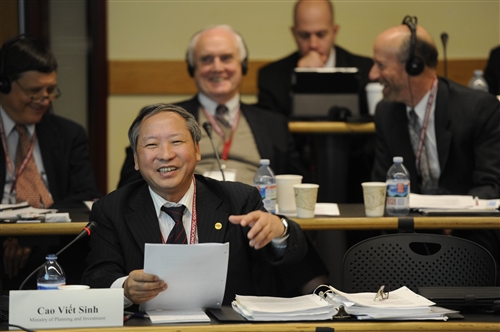
Past VELP Activities
VELP 2019
VELP 2019 was organized from 02-06 December 2019 at the Harvard Kennedy School, Boston, USA. In the context of global socio-economic uncertainties, this year’s VELP focused on how to comprehensively enhance Vietnam’s political, economic and technological capacity.
VELP 2019 welcomed a panel of world-renowned scholars from Harvard, like Professor Jason Furman, former chair of the Council of Economic Advisers under the Obama administration, and Professor Anthony Saich, Director of Ash Center, a leading expert on Chinese social policy. The roster of speakers also included leaders of American tech giants like Google, Facebook and Amazon, who came to present and analyze revolutionary trends in technology and digital transformation.
By discussing methods to attract foreign direct investments to technological sectors such as cloud computing, cyber security and computerized public service innovation, experts provided Vietnamese policymakers with up-to-date analysis and practical outlooks in anticipation of future policy challenges.
The Vietnamese delegation attending VELP 2019 consisted of 15 delegates with Mr. Nguyen Van Binh, Member of the Politburo and Chairman of the Central Economic Committee, as Head of Delegation.
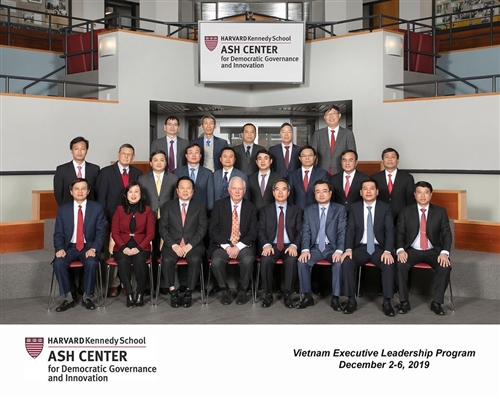
Faculty & Lecturers
VELP is jointly delivered by Harvard University professors and FSPPM faculty members.

